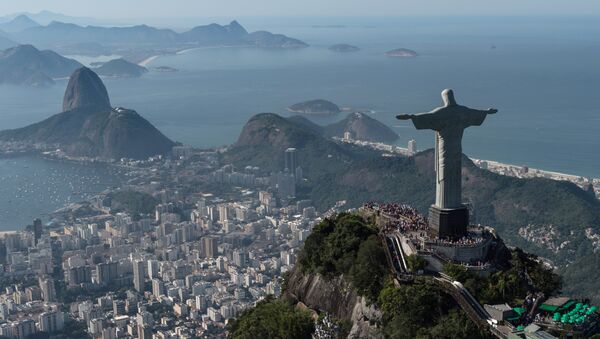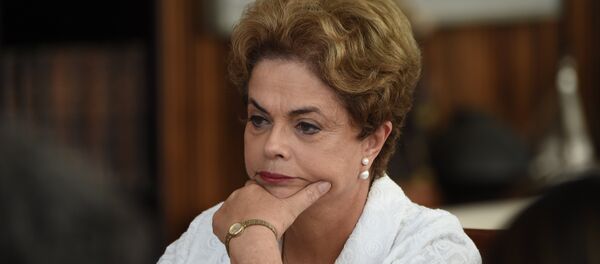Kristian Rouz — A top Brazilian official admits his country is facing lower GDP projections in the near-to-medium-term, but dismisses the speculation the nation could dip into a recession anytime soon. However, many economists are sceptical, saying weak economic performance in 1Q19, along with the lingering sluggishness in the services sector, pose a serious challenge.
READ MORE: Brazil Faces Mass Protests Against Education Spending Cuts
According to Brazilian Economy Minister Paulo Guedes, political tensions and a lack of decisive economic reforms are holding back the nation's GDP growth. Still, Guedes believes Brazil's pace of economic expansion is poised to remain solid despite the mounting risks.
Guedes also urged a privatisation of the nation's state-owned banking giant Caixa Econômica Federal as part of the planned fiscal reforms. He said the move would bolster economic growth and improve Brazil's budget sustainability, allowing the government to implement limited fiscal stimulus to further support the economy.
"If we are seeking profitability, we must privatise as soon as we can. Why should I have a bank with 21,000 branches in Brazil posting losses? It should be privatised, sold, or merged with Banco do Brasil," Guedes said.
Brazil's GDP growth was —0/68 percent quarter-on-quarter in Q1, compared to a 0.1-percent expansion in the fourth quarter of 2018.
Guedes said recently that the Brazilian government has cut its GDP growth expectations for this year from 2.2 percent to just 1.5 percent. The Brazilian central bank, meanwhile, says the economy is underperforming amid weakening business activity.
According to the Central Bank of Brazil, overall economic activity declined by 0.28 percent in March. Officials say the Brazilian economy might be heading for a recession for the first time since 2016, when corruption scandals and volatility in international oil prices weighed on the Brazilian GDP.
READ MORE: Just Business: Brazil Cuts Flow of Money to Venezuela
For their part, experts at the American investment bank Goldman Sachs cut their 1Q19 estimate of Brazil's economic expansion to —0.1 percent from an earlier forecast of 0.2 percent. Goldman expects Brazil's economy to slow down to 1.2 percent for the full 2019, compared to 1.7 percent predicted previously.
Brazil's right-wing President, Jair Bolsonaro, has promised to restore investor confidence and boost the nation's economic growth by cutting taxes and regulations, as well as by introducing market-friendly economic policies.
However, Bolsonaro is facing political setbacks in Congress, with centre-left and left-wing lawmakers opposing the President's plans to reduce social spending amid the rife poverty which faces many Brazilian communities.
Brazil's retail sales have been dismal this year as well due to the stagnant disposable incomes of the majority of households.
Meanwhile, central bank officials said at a recent policy meeting that they won't be able to cut rates or introduce other measures to support the economy unless the government provides more clarity on its upcoming economic reforms. Central bankers fear the government could enact some fiscal stimulus this summer, while could coincide with a possible rate cut — creating a threat of asset bubbles in the economy.
The Brazilian government is set to release it official first quarter GDP reading on 30 May, while a revised economic growth forecast, along with the newest version of fiscal spending and revenue report, are set to be published on 22 May.






